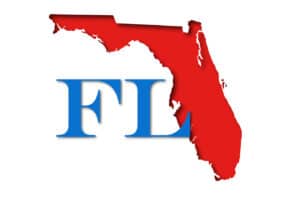General News

California Seeks Feedback On TOD Housing Program Update
The California Department of Housing and Community Development (HCD) is seeking feedback on the NOFA and program guidelines for the next round of its Transit-Oriented Development (TOD) program. Thanks to new, voter-approved housing bonds, the TOD program will be releasing a new NOFA in 2020. In preparation, HCD invites you to help shape Round 4 Guidelines by reviewing the Round 3 Guidelines from Fiscal Year 2013-2014 and providing feedback.

CalHFA Publishes Term Sheet & Key Program Dates for Mixed-Income Program
The California Housing Finance Agency (CalHFA) recently published a term-sheet for its new Mixed-Income Program (“MIP”), which provides competitive long-term subordinate financing for new construction multifamily housing projects restricting units (tax credit or CalHFA) between 30% and 120% of county Area Median Income (“AMI”).

Court Rules San Jose Must Comply with California Surplus Land – Affordable Housing Law
The Six District Court of Appeals in California issued a ruling on November 26, 2019 requiring the City of San Jose to comply with a state law that requires cities to make surplus public land available for affordable housing. The San Francisco Chronicle reports that, “The ruling, if it stands, will apply to 121 cities […]

Steve Walker Named New Executive Director of the Washington State Housing Finance Commission
The Washington State Housing Finance Commission named Steve Walker as its new executive director after a nationwide search. Walker returns to the Commission, where he was director of Multifamily Housing and Community Facilities until 2013, after most recently leading the City of Seattle Office of Housing.

Perceptions of Affordable Housing Investment: 2019 Study Key Findings
Kingsley Associates released an executive summary of findings from confidential interviews with 31 large institutional investors and investment advisors on the topic of affordable housing investment. They found three main reasons these investors chose not to invest in affordable housing:
The Federal Government’s “onerous rules and regulations.”
The miseducation (or under-education) of the investment community.
Investing in affordable housing solely to meet a mandate.

NCSHA, EIG Publish Three Case Studies on Affordable Housing in Opportunity Zones
The National Council of State Housing Agencies (NCSHA) and the Economic Innovation Group (EIG) published three case studies of developments that incorporate Opportunity Zone investment to create new affordable homes and support community revitalization efforts in Ohio, Maryland and Florida. These are the first in a new series of Opportunity Zone Development Profiles that detail project financing, community socioeconomic data and projected economic impact. The profiles demonstrate how Opportunity Zone investments are being utilized to develop affordable homes for very-low- to moderate-income households, and how that investment is furthering community revitalization efforts and enhancing positive community impact.

Florida Governor Recommends Full Funding for Affordable Housing Programs in Budget
Governor Ron DeSantis (R-FL) announced full funding for affordable and workforce housing programs. Unveiled in his Bolder, Brighter, Better Future Budget, the Governor recommends providing $387 million to the affordable housing trust funds – $119.8 million for the State Apartment Incentive Loan (SAIL) program and $267.2 million for the State Housing Initiative Partnership (SHIP) program.

Louisville, Kentucky: Family Scholar House Helps Residents Achieve Economic Independence through Academic Success
HUD User published a case study on the Riverport Family Scholar House, one part of a larger multi-generational housing development. Riverport provides affordable housing and a network of support services to single parents and foster care alumni who are pursuing post-secondary education in Louisville, KY. Residents receive access to free or heavily subsidized child care, […]

Mayor Buttigeg Releases Housing Plan
Democratic presidential hopeful Mayor Pete Buttigieg (South Bend, IN) released An Economic Agenda for American Families which includes spending $430 billion on affordable housing measures. “He will enable more than 2 million more units of affordable housing to be built or restored where it is needed most, using billions of dollars of investments in the Housing Trust Fund, Capital Magnet Fund, HOME and CDBG funds, and the Low Income Housing Tax Credit.”

Voters Approve Housing Ballot Measures
Voters in multiple jurisdictions across the country approved housing- and mitigation-related ballot measures. Voters in Durham, NC approved a $95 million affordable housing bond by a 76 to 24 percent margin. The measure will be paired with $65 million in federal and local funding over the next five years to support affordable housing development and […]

JCHS: State and Federal Governments Support Needed to Tackle Housing Affordability
Daniel McCue with the Harvard Joint Center for Housing Studies argues in a new blog post that even the largest cities will need help tackling housing affordability.

Apple Commits $2.5 Billion to Combat Housing Crisis in California
Apple recently announced a $2.5 billion plan to help address the housing availability and affordability crisis in California. The funding commitment to California is expected to take approximately two years to be fully utilized depending on the availability of projects. Capital returned to Apple will be reinvested in future projects over the next five years.